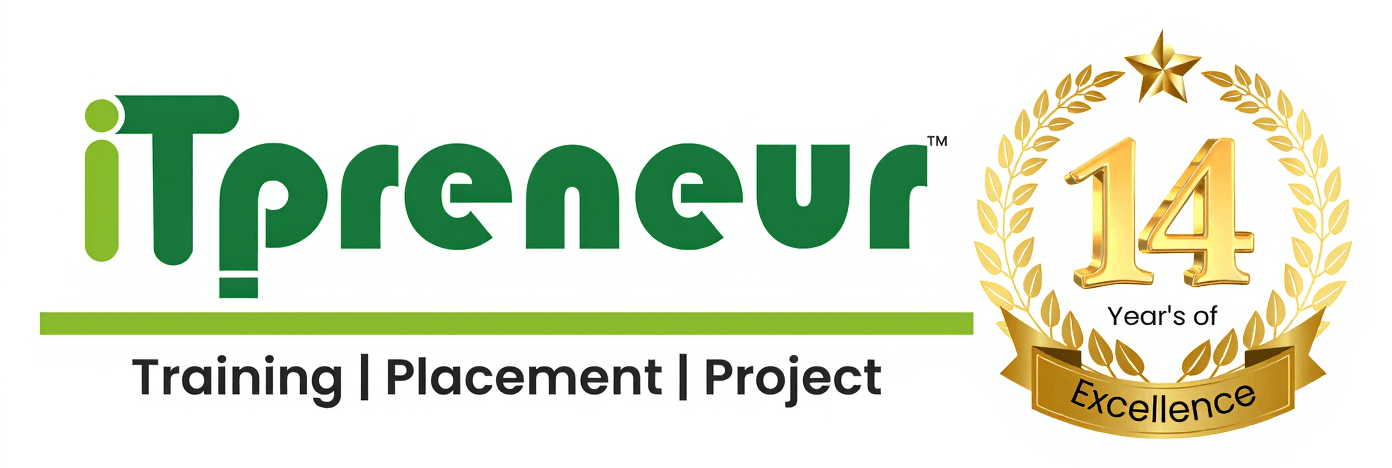Beyond Tech: The Critical Role of Business Analysis in IT Projects

In today’s fast-paced digital world, IT projects are key drivers of innovation and growth for businesses. However, with complex requirements, diverse stakeholders, and shifting goals, IT projects can be challenging to manage. This is where business analysis plays a pivotal role. At ITpreneur, we understand that effective business analysis is the backbone of successful IT projects, ensuring they meet business objectives and deliver tangible value. 1 What is Business Analysis? Business analysis can be defined as a collection of practices, tools, and techniques that help ascertain business requirements and proffer solutions to complex issues. It involves knowing the ‘why’, ‘what’ and ‘how’ of a project while aiming to achieve the desired result that meets business needs and user expectations. A business Analyst (BAs). in an IT project plays the role of a liaison between the technical teams and stakeholders. They collect and elaborate on requirements, perform effective communication with various teams and ensure adherence to project targets. 2 Key Roles of Business Analysis in IT Project Success 1-Proper Requirement Gathering and Documentation Insufficient information and vague or unwrapped requirement is one of the prime factors for IT project failure. Business analysis deals regularly with such unfair circumstances by collecting all the requisite data from relevant stakeholders, exploring the problems and ensuring that such issues are properly recorded in an ordered manner. This unfortunately leads to proximate imitates not employing actual communication all of which enhance the premise every project is established on. 2-Ensuring Project Objectives are Synced with the Business Objectives Business analysts are learners of the business and ensure that the goal set out for the project is consistent with the broad aims of the organization. They are driven by the context of the business and the major aims of the mission to ensure that the outcomes of the projects are relevant to the strategic objectives ensuring that the IT offer real value. 3-Risk Management Risk is an attribute of every IT project; it involves budget overrunning, time lag, and even failure of technologies. Various studies have shown the effectiveness of utilizing a business analyst in a project since they can pre-evaluate the risks involved through comprehensive project requirement and dependency examination. Generally, by recognizing risks at such an early stage, BAs anticipate the teams to develop reactions enhancing the likelihood of avoiding time wastage and undue costs. 4-Improved Communication and Coordination Business analysts have the skill of converting technical terms into business language and business terminology into technical language. It helps to ensure that all investors are focused on a common goal irrespective of their technical expertise level, as every detail of the project is important. the same page. A BA’s ability to foster open communication keeps the project flowing smoothly, improving teamwork and overall project efficiency. 5 – Quality Assurance and Project Validation A rôle Business analyste affaires ne extend pas à la phase de dévelopement. are involved in testing, validation and assurance of quality in order to ensure that the said project conforms to the documented requirements. Through the confirmation of the project’s outputs, the BAs also mitigate the risks of expensive mistakes and facilitate that the intended goals of the completed product still are achieved. 6 – Continuous Improvement and Feedback business analyses ’affaires ne s’arrête pas à la mise en production du projet. The BAs solicit feedback, evaluate results and seek for enhancements, which ensures that the solution adapts to current and future situations. By concentrating on innovations, the investment returns over the project period have a potential to be enhanced in relation to any changes in the business. 3 The Benefits of Business Analysis for IT Projects Effective business analysis offers a variety of benefits to IT projects, such as: Cost Reduction: Precise requirements and effective risk management help avoid costly rework and budget excesses. Improved Efficiency: Clearly defined processes and robust communication facilitate smooth project execution, conserving both time and resources. Enhanced Decision-Making: Business analysts provide data-driven insights that support informed decisions, positively impacting the organization as a whole. Increased User Satisfaction: By ensuring that projects align with user requirements, business analysts contribute to the satisfaction of end-users with the final deliverable. 4 Why Business Analysis Skills Matter The need for proficient business analysts is on the rise as organizations increasingly acknowledge the significance of their contributions to IT initiatives. The expertise in business analysis enables professionals to navigate the intricacies of contemporary technology projects, rendering them essential resources for any company. At ITpreneur, we provide targeted courses in Business Analysis designed to equip future analysts with the necessary skills to thrive in this crucial position. Our extensive curriculum encompasses training in industry-recognized methodologies, practical projects, and guidance from experienced mentors, ensuring you are ready to make a meaningful impact on IT project outcomes from the outset. 5 Conclusion In conclusion, business analysis plays a vital role in the success of IT projects, encompassing activities such as requirement gathering, risk management, and quality assurance. By facilitating communication between technical teams and stakeholders, business analysts contribute to ensuring that projects are aligned with business objectives, remain on schedule, and provide tangible value. 6 Ready to Become a Business Analysis Expert? Take the first step toward a rewarding career in business analysis with ITpreneur. Enroll in our Business Analysis course and gain the knowledge and skills you need to drive IT project success. Start your journey with ITpreneur today, and transform your future in IT project management!
Flutter vs React Native: Why Flutter is the Superior Choice for App Development

By ITpreneur In today’s competitive app development world, choosing the right framework is crucial. Two of the leading cross-platform frameworks—Flutter and React Native—are often at the center of this debate. At ITpreneur, where we offer comprehensive courses in app development, students frequently ask which one is better. While both Flutter and React Native have their merits, Flutter clearly stands out for a variety of reasons. Let’s dive into why Flutter is the superior choice for developers. What are Flutter and React Native? Before we get into the comparison, let’s briefly define both frameworks: Flutter is a free, open-source UI software development kit (SDK) created by Google. It allows developers to create natively compiled applications for mobile, web, and desktop from a single codebase. React Native is a JavaScript framework developed by Facebook. It enables developers to build mobile applications using JavaScript and React, and it compiles into native components for both Android and iOS. Both are designed to save time and effort by allowing developers to build apps that run on multiple platforms. However, Flutter outshines React Native in several key areas. 1. Performance: Flutter’s Edge Over React Native Performance is one of the most critical factors in app development. A smooth and responsive app experience is a must to keep users engaged. Here’s where Flutter shines: Native-like performance: Flutter is compiled directly into native ARM code for both iOS and Android. It doesn’t rely on a JavaScript bridge like React Native, which means faster performance and fewer chances of bottlenecks in complex applications. Consistent 60 fps: Flutter ensures high performance with its built-in Skia graphics engine, enabling applications to run smoothly at 60 frames per second (fps). In contrast, React Native often suffers from performance lags, especially in apps with complex UIs. 2. UI and Customization: Flutter Takes the Lead Flutter offers a highly customizable and expressive UI. Here’s how it excels over React Native: Hot Reload feature: Flutter’s “hot reload” allows developers to see changes instantly without restarting the app. This feature makes it incredibly efficient for UI changes, testing, and debugging. Built-in rich widgets: Flutter provides a wide range of pre-designed widgets that follow Google’s Material Design and Apple’s Cupertino design. These widgets are highly customizable and provide a native-like experience without the need for third-party libraries. Consistency in design: With Flutter, you can ensure a consistent look across platforms. React Native often relies on third-party libraries for UI elements, which can sometimes lead to inconsistencies across platforms. Flutter not only simplifies the development process but also ensures that your app looks and feels native on both iOS and Android. 3. Developer Productivity: Flutter Makes Development Easier At ITpreneur, our Flutter development courses are a hit among students for one simple reason—productivity. Flutter’s design allows developers to get more done in less time. Single codebase for all platforms: Flutter allows you to write one codebase that runs on mobile, web, and desktop. React Native, while cross-platform, often requires additional work for platform-specific features. Fewer platform-specific issues: Flutter manages to avoid the platform-specific headaches that come with React Native. Because it compiles to native code, there are fewer unexpected bugs on different operating systems. Vast documentation and community support: Flutter’s documentation is considered some of the best in the industry. The growing Flutter community also provides excellent support, making problem-solving easier for developers. These features enable developers to work faster and more efficiently, making Flutter the framework of choice for those who value productivity. 4. Growing Popularity and Future Proofin The future of Flutter is bright, and it’s growing at an exponential rate. Google is heavily invested in Flutter, using it for their own applications, which speaks volumes about its reliability and long-term viability. Backed by Google: As the developer of Flutter, Google ensures it stays up-to-date with the latest technology advancements, continuously adding features and improving its performance Adoption by top companies: Big brands like Alibaba, eBay, and Google Ads are already using Flutter, proving that it’s more than just a trend. In contrast, while React Native is also widely used, its development speed has slowed in recent years. Choosing Flutter today means you’re investing in a framework that is future-proof and poised to stay relevant in the fast-evolving world of app development. 5. Learning Curve: Flutter is Developer-Friendly of the key questions our students ask at ITpreneur is, “Which framework is easier to learn?” Here’s whyOne Flutter wins this battle: Dart language: Flutter uses Dart, a modern object-oriented language created by Google. Dart is easier to learn than JavaScript (used in React Native) because it avoids the quirks and complexities of JavaScript, making the development process smoother. Unified approach: Since Flutter offers a unified codebase for multiple platforms, developers don’t need to learn platform-specific code, making it faster to get up and running. React Native, on the other hand, requires knowledge of both JavaScript and native modules, which can increase the learning curve. Conclusion: Why Choose Flutter? At ITpreneur, we believe that Flutter is the future of cross-platform app development. Its superior performance, customizable UI, faster development time, and growing community make it the ideal choice for aspiring developers. While React Native has its place in the development world, Flutter offers a more efficient, powerful, and future-proof solution. If you’re looking to master Flutter and become a sought-after developer in the app development industry, our Flutter development course at ITpreneur is designed just for you. With experienced instructors and real-world projects, you’ll gain the skills needed to create high-performance, visually stunning apps. Ready to unlock your app development potential? Enroll in our Flutter course today and join the future of app development!
Unlocking Strategic Potential: The Role of HR Business Partners in Organizations

In today’s fast-paced business environment, organizations are evolving beyond traditional HR roles, placing greater emphasis on strategic business outcomes. Enter the Human Resources Business Partner (HRBP), a dynamic role designed to bridge the gap between human resources and business strategy. If you’re a student aspiring to make a meaningful impact within organizations, pursuing an HRBP career could be your gateway to becoming a key player in driving organizational success. 1 What is an HR Business Partner (HRBP)? An HR Business Partner (HRBP) works closely with an organization’s leadership to align human resources strategies with the company’s goals. Unlike traditional HR roles, HRBPs focus on strategic initiatives such as talent management, organizational development, and workforce planning, acting as trusted advisors to senior management. HRBPs play a crucial role in shaping the future of the business by ensuring that HR policies and practices contribute to achieving overall objectives. Whether it’s developing leaders, enhancing employee engagement, or designing performance management systems, HRBPs are at the forefront of fostering a people-centric, high-performance culture. 2 Why HRBP Skills Are in Demand Businesses increasingly recognize that people are their most valuable asset. As such, the need for HR professionals who understand business strategy and can align HR initiatives accordingly is growing. Here’s why HRBP skills are becoming highly sought after: Strategic Thinking: HRBPs are critical in shaping long-term workforce strategies that align with organizational objectives. Leadership Development: As organizations focus on grooming future leaders, HRBPs are essential in identifying and nurturing leadership talent. Change Management: In times of transition or disruption, HRBPs help manage organizational change, ensuring smooth adaptation while minimizing resistance. Data-Driven Decisions: With access to workforce analytics, HRBPs use data to guide recruitment, retention, and performance decisions. Employee Engagement: HRBPs implement programs that improve employee satisfaction and retention, contributing to a positive workplace culture. 3 The Role of HRBPs in Organizational Success HRBPs don’t just focus on operational HR tasks. Instead, they operate at the intersection of people management and business strategy, working directly with key stakeholders to ensure human capital aligns with the company’s long-term objectives. They contribute to business success by: Aligning Talent with Business Goals: HRBPs ensure that the right people with the right skills are in the right roles to achieve business objectives. Promoting a Culture of Innovation: Through effective leadership development and employee engagement programs, HRBPs foster a culture of continuous improvement and innovation. Supporting Business Transformation: HRBPs play a crucial role in times of mergers, acquisitions, or organizational restructuring by managing the human side of change. 4 Future Trends in HRBP Courses cess. HRBP courses are incorporating the latest trends in business and technology to keep up with the demands of a changing workforce. Here are some future trends in HRBP education: 1. Digital HR & HR Analytics With the rise of AI and big data, HRBPs are expected to be proficient in digital tools and HR analytics. HRBP courses are focusing on training students to use HR technology platforms and analyze workforce data to make more informed strategic decisions. 2. Diversity, Equity, and Inclusion (DEI) The importance of creating inclusive workplaces is growing, and HRBPs are at the forefront of this movement. Future HRBP courses will delve deeper into DEI strategies, training students to build diverse teams and foster inclusive cultures. 3. Remote Workforce Management With the increase in remote and hybrid work models, HRBPs need to develop skills in managing remote teams and ensuring employee engagement in virtual environments. HRBP courses are adapting by offering modules on remote leadership and virtual workforce management. 4. Agile HR Practices Agility is becoming a core focus in HR practices. HRBPs are learning how to implement agile methodologies, enabling quicker adaptation to changes within an organization. Future HRBP courses will emphasize flexible, responsive HR strategies to keep pace with evolving business needs. 5. Sustainability & Corporate Social Responsibility (CSR) As businesses become more socially and environmentally conscious, HRBPs will play a key role in integrating sustainability and CSR into company culture. HRBP courses will provide students with the skills to design and implement CSR programs that align with business values. 6. Leadership Coaching and Development The demand for HRBPs to act as leadership coaches continues to rise. HRBP courses are focusing on developing coaching skills, preparing students to mentor senior leaders and guide them through the challenges of leading modern organizations. 5 Why Pursue an HRBP Course? Pursuing an HRBP course equips you with the strategic skills needed to thrive in this role. At ITpreneur, we offer a comprehensive HRBP course designed to prepare you for a successful career in human resources. Our course covers: Strategic HR Management: Learn how to align HR functions with business objectives. Leadership Development: Master the art of nurturing and developing future leaders. Workforce Planning: Understand the techniques of long-term talent management. Employee Relations: Build strong relationships that foster trust and engagement within the workforce. With the growing demand for HRBPs, our course ensures that you are not just prepared for today’s challenges but also equipped for future HR trends. 6 Kickstart Your HRBP Career Today! Are you ready to step into the world of strategic HR? At ITpreneur, we offer industry-relevant HRBP courses that help you develop the necessary skills to succeed. Take the next step toward becoming an HR Business Partner and shaping the future of organizations. Visit itpreneurpune.com and enroll in our HRBP course today. Unlock your potential and become the strategic partner every business needs!
Ratan Tata: A Beacon of Inspiration for Future ITpreneurs

Synonymous with integrity, leadership and philanthropy, Ratan Tata is one of India’s most admired business icons. His journey from transforming the Tata Group into a global conglomerate to becoming a driving force for youth and entrepreneurs is a testament to his visionary leadership and commitment to the betterment of society. At ITpreneur, we strive to inspire students with the same values that Ratan Tata embodies – values that go beyond success and focus on creating a sustainable impact through innovation, commitment and ethical leaders Our education arm, ITpreneur see itpreneurpune.com offers a wide range of IT courses designed to prepare students for the dynamic needs of the technology industry. Like Ratan Tata who focuses on empowering individuals and driving change, we believe in nurturing today’s talent to create tomorrow’s IT leaders. 1 – Ratan Tata’s Legacy: A Pillar of Innovation and Integrity Ratan Tata has accomplished a great deal over his career, but his constant emphasis on honesty and creativity is what really makes him stand out. Whether it was buying global heavyweights like Jaguar Land Rover or introducing the most cheapest automobile in the world, the Tata Nano, he has always believed in taking big chances. His mission has always been to improve people’s lives rather than merely make money. We at ITpreneur firmly believe in this vision. Our mission is to enable our students to become leaders and innovators in the IT industry in addition to offering education. We provide courses like Digital Marketing, Software Testing, Full Stack Development, and many more, all of which are intended to help students develop marketable skills and progress technology in ways that benefit society. 2 – How ITpreneur Aligns with Ratan Tata’s Values 1 Dedication to Excellence and Quality: Ratan Tata has consistently underlined the value of excellence and quality in all he does. In a similar vein, our goal at ITpreneur is to provide excellent IT courses that are taught by professionals with relevant industry experience and curriculum. Our students absorb the principles of excellence and dedication that Tata embodies in addition to learning the technical skills necessary for their jobs. 2 Ethical Leadership and Responsibility: The foundation of Tata’s legacy is built upon principles of ethics, compassion, and social responsibility. At ITpreneur, our objective is to impart these essential values to our students. We hold the conviction that the upcoming generation of IT professionals must not only possess technical expertise but also demonstrate integrity, lead with empathy, and make positive contributions to society. 3 Innovation and Problem-Solving: Tata’s methodology in addressing challenges—be it through groundbreaking products such as the Tata Nano or his charitable initiatives—has consistently demonstrated a progressive mindset. At ITpreneur, we inspire our students to embrace innovation and develop effective solutions to problems. curriculum emphasizes real-world applications, preparing students to address the challenges of tomorrow with confidence and creativity. 3 – Inspiring the Next Generation of IT Leaders at ITpreneur Ratan Tata’s journey serves as a source of inspiration for those pursuing professional excellence. He exemplifies that success can be attained through the right mindset, unwavering determination, and strong values, all while contributing positively to society. At ITpreneur, we strive to embody this philosophy by offering comprehensive IT education alongside the mentorship and support necessary for our students to evolve into ethical leaders and innovators in their respective fields. Our institute provides a variety of IT courses, such as Full Stack Java Developer, Python Developer, AUTOSAR Software, and Clinical Research. These programs are meticulously crafted to furnish students with the essential skills and knowledge required to thrive in the technology sector. Emphasizing a commitment to a 100% placement guarantee, we strive to ensure that our students are not only prepared for immediate employment but also equipped to assume leadership positions in the dynamic IT environment. 3 – Conclusion: Following in the Footsteps of a Legend Ratan Tata’s legacy embodies greatness, not solely due to his achievements in business but also because of the significant societal transformations he has fostered. At ITpreneur, we strive to emulate his example by cultivating an atmosphere that inspires students to dream ambitiously, exert effort, and lead with ethical principles. Regardless of whether your goal is to become a developer, a data analyst, or a digital marketing specialist, we are committed to assisting you in reaching your full potential and making impactful contributions to society. Join us at itpreneurpune.com and take the first step toward building a career that not only defines your success but also leaves a lasting impact—just like the inspiring legacy of Ratan Tata.
Top 15 Most Commonly Asked Software Testing Interview Questions and Answers in 2024

Prepare for your Software Testing interviews in 2024 with this comprehensive guide to the top 15 most commonly asked questions and answers. Whether you’re a beginner or experienced tester, these essential questions will help you confidently tackle your next interview and showcase your expertise in software testing. 1. What is Software Testing, and why is it important? Answer: Software Testing is the process of evaluating a system or its components with the intent to find whether it satisfies the specified requirements or not. It helps to identify bugs, ensure quality, and verify that the software works as expected. Testing ensures the reliability, performance, and security of the software product before it is released to users. 2. What are the different types of Software Testing? Answer: There are two main categories of Software Testing: Manual Testing: Where test cases are executed manually without any automation tools. Automation Testing: Where tools like Selenium, QTP, etc., are used to execute test cases automatically. Further, it can be classified into: Functional Testing: Verifies that each function of the software operates according to requirements (e.g., Unit Testing, Integration Testing, System Testing). Non-Functional Testing: Focuses on performance, usability, reliability, etc. (e.g., Performance Testing, Load Testing, Stress Testing). 3. What is the difference between Verification and Validation? Answer: Verification: It is the process of checking whether the software conforms to its specification. It answers the question, “Are we building the product right?” Validation: It is the process of evaluating the final product to check whether it meets the business needs and requirements. It answers the question, “Are we building the right product?” 4. What is the difference between Black Box Testing and White Box Testing? Answer: Black Box Testing: Focuses on testing the software without any knowledge of the internal code structure. It is based on input and output requirements and functionalities. White Box Testing: Requires knowledge of the internal workings of the code. Testers test the internal logic, code paths, and loops. 5. What is a Test Case? Answer: A Test Case is a set of conditions or actions performed to verify a particular feature or functionality of your software application. It includes test inputs, execution conditions, and expected results. A well-written test case helps in the identification of potential issues in the software. 6. What is the difference between Smoke Testing and Sanity Testing? Answer: Smoke Testing: It is the preliminary testing to check the basic functionality of the software. If the software passes this test, it is ready for further testing. Sanity Testing: It is a narrow regression test focused on verifying that specific functions or bugs have been fixed after changes or updates to the code. 7. What is Regression Testing? Answer: Regression Testing is a type of testing to confirm that a recent program or code change has not adversely affected the existing features. It ensures that the new code changes have not introduced new bugs or issues in the previously working functionality. 8. What is a Defect Life Cycle or Bug Life Cycle? Answer: The Defect Life Cycle is the process a defect goes through from the moment it is discovered until it is fixed and closed. Common stages in a defect life cycle include: New Assigned Open Fixed Retested Closed Reopened (if necessary) 9. What is Exploratory Testing? Answer: Exploratory Testing is an approach where the tester actively explores the application to identify any potential defects. Unlike scripted testing, it does not follow predefined test cases but relies on the tester’s intuition and experience to discover problems. 10. What are Test Automation tools? Can you name a few popular ones? Answer: Test Automation tools are software applications used to automate the process of executing test cases and comparing the actual outcomes to the expected results. Popular automation testing tools include: Selenium QTP (Quick Test Professional) TestComplete JUnit LoadRunner (for performance testing) 11. What is the difference between Alpha and Beta Testing? Answer: Alpha Testing: Done by developers and internal testers before releasing the product to the customers. It is conducted in the development environment. Beta Testing: Performed by a limited number of actual users in the real environment before the final release. It helps to gather user feedback and ensure that the product is ready for a wider audience. 12. What is Agile Testing? Answer: Agile Testing is a testing practice that follows the principles of Agile software development. In Agile, testing is continuous and is done alongside development in short iterations. Testers collaborate closely with developers and stakeholders to ensure the product meets user expectations. 13. How do you prioritize which test cases to execute first? Answer: Test case prioritization depends on: The criticality of the features being tested. The risk of failure and impact on the business. Areas that have undergone recent changes or are highly used. Regression tests to ensure stability. 14. What is a Test Plan, and what does it include? Answer: A Test Plan is a document outlining the scope, objectives, resources, and schedule of intended testing activities. It typically includes: Test objectives Testing scope Test strategy Resources required (hardware, software, personnel) Schedule and deadlines Risk assessment Entry and exit criteria 15. How would you handle a situation where you found a critical bug just before the product release? Answer: If I find a critical bug before the release, I would: Report the bug immediately to the development and management teams. Provide a detailed description of the issue, including steps to reproduce it. Discuss with the team to assess the impact and decide whether to delay the release or apply a hotfix. Ensure proper communication to stakeholders about the issue and the plan to resolve it.
Future Trends in Full Stack Development: Prepare Today with ITpreneur’s Courses!

Because of the rapid evolution of the tech sector, Full Stack Development is becoming a highly sought-after skill for both corporations and developers. The importance of Full Stack Developers has increased as companies embrace digital transformation and look for experts that can manage both the front-end and back-end of web applications. We’ll talk about the present situation, new trends, and prospects for Full Stack Development in this blog. We’ll also discuss 1 What is Full Stack Development? Working on web applications’ front-end (what users see) and back-end (server-side functionality and database interactions) is a component of full stack development. Because of their broad skill set, Full Stack Developers are able to work on a variety of technologies throughout the software development lifecycle. Complete Stack Developers are adept at handling every facet of an application, from creating user interfaces (UI) to writing APIs and maintaining databases. Comprehensive instruction on well-known Full Stack frameworks and tools is offered by ITpreneur’s courses, which include: Front-End: HTML, CSS, JavaScript, React.js, Angular Back-End: Node.js, Python, Java, .NET, Django Databases: MySQL, MongoDB, PostgreSQL Version Control: Git & GitHub APIs & Web Services: RESTful APIs, GraphQL 2 The Current State of Full Stack Development The demand for full-stack developers is on the rise today as there is a need for experts who can efficiently manage both the aspects of web development. Companies prefer to hire well-rounded skilled developers as they can play multiple roles, reduce hiring costs and increase project efficiency. This demand spans across various industries, from tech startups to large enterprises and e-commerce platforms. At ITpreneur, we ensure that our full-stack courses are in line with current industry requirements and provide students with practical knowledge and hands-on experience on real projects. 3 Latest Trends in Full Stack Development The world of full-stack development is constantly evolving. Here are some of the latest trends shaping the industry: JavaScript Ecosystem Expansion: JavaScript has solidified its position as the language of choice for full-stack developers. Frameworks such as React.js, Angular, and Node.js are widely used and become even stronger with continuous updates to the JavaScript ecosystem. Serverless Computing: Enterprises are increasingly adopting serverless architectures, allowing developers to build and deploy applications without managing server infrastructure. This trend allows full-stack developers to focus on code instead of server management. Progressive Web Apps (PWAs) PWAs offer the best of both worlds – the functionality of a website and the seamless user experience of a mobile app. Full-stack developers play a key role in developing these feature-rich, responsive apps. Microservices and API-Driven Development: With the advent of microservices, full-stack developers are expected to design and develop modular applications that can be scaled more easily. API-first development also becomes increasingly important as applications become more dependent on external services. Artificial Intelligence and Machine Learning Integration Full-stack developers are now integrating AI and ML technologies into their applications, resulting in smarter and more efficient software solutions. At ITpreneur, we incorporate these latest trends into our full-stack curriculum to ensure our students are well prepared for the modern workplace. 4 Growth and Demand for Full Stack Developers Not only are full-stack developers in high demand around the world, they are also one of the most diverse roles in technology. A report by NASSCOM (National Association of Software and Service Companies) highlighted full-stack development as one of the 10 most in-demand tech skills for the next decade This demand is driven by the growing need for digital solutions across industries, from fintech to healthcare to retail. Completing full-stack development with ITpreneur opens up a rapidly growing career with vast opportunities. 5 Salary of Full Stack Web Developers in India The earning potential for full stack developers in India is huge. On average, full stack developers earn between 600k to 1.2m per year, with more experienced developers earning up to 18m+. Salaries tend to be even higher in major tech hubs like Bangalore, Pune and Hyderabad, due to the high concentration of tech companies there. At ITpreneur, we provide career advice and job placement assistance to students, helping them find high paying jobs with reputed companies. 6 Flexibility and Top-Notch Companies Hiring Full Stack Developers Full Stack Developers have the flexibility to work in various industries and can choose from roles in software development companies, e-commerce platforms, fintech startups, and multinational corporations. Major companies like Google, Amazon, Facebook, and Infosys are always on the lookout for talented Full Stack Developers to build scalable, user-friendly applications. At ITpreneur, we partner with industry leaders to ensure our students receive top-tier training and placement opportunities with some of the best companies in the market. 7 Why Full Stack Development is a Great Career Choice Full Stack Development is not only lucrative but also offers the following advantages: Versatility: Full Stack Developers can work across multiple technologies, from front-end frameworks to back-end databases, giving them a broad skill set. High Job Security: Given the growing need for tech professionals, Full Stack Developers enjoy job security and opportunities for rapid career progression. Continuous Learning: The tech industry is always evolving, and Full Stack Development offers a dynamic environment for learning new technologies. Remote Work Opportunities: Full Stack Developers can work from anywhere, opening up remote job opportunities with international companies. 8 Conclusion: Why ITpreneur’s Full Stack Courses are Your Path to Success The future of Full Stack Development is bright, with high demand, evolving technologies, and excellent career prospects. At ITpreneur, we offer comprehensive Full Stack Development courses that cover everything you need to become a successful developer in this dynamic field. From learning cutting-edge tools and frameworks to hands-on experience with real-world projects, our courses are designed to equip you with the skills required to excel in today’s competitive job market. Start your journey towards becoming a Full Stack Developer today by enrolling in ITpreneur’s Full Stack Development courses. Visit https://itpreneurpune.com/courses/premium-placement-program/ to learn more and take the next step in your career!
Blueprint to Your Tech Career Discover ITpreneur’s Diverse IT Course

The world is rapidly moving into the digital age, with technology powering almost every industry. Whether you want to build cutting-edge web applications, manage data, or develop dynamic marketing strategies, acquiring the right tech skills is the gateway to success. At iTpreneur, we believe that investing in your education is the best way to ensure a rewarding career in tech. Our diverse IT courses are tailored to meet the needs of aspiring professionals, whether you’re new to the tech industry or an experienced professional looking to improve your skills. In this blog, we’ll take a closer look at the different courses offered by iTpreneur, explain how each one can advance your career, and help you choose the right path for your future in tech. In this blog, we’ll take a closer look at the different courses offered by iTpreneur, explain how each one can advance your career, and help you choose the right path for your future in technology. Why Technical Skills Are More Important Than Ever Before considering courses, let’s take a look at why acquiring technical skills is so important in today’s job market. 1 Unprecedented Demand for Tech Talent: The demand for qualified technical talent continues to increase across all industries. From healthcare to finance, businesses rely on technology to drive efficiency, innovation, and growth. Therefore, IT positions are not only in high demand, but they also offer excellent salary packages. 2 Diverse Career Opportunities: The tech industry is incredibly diverse and offers a wide range of career paths. Whether you’re interested in software development, data analytics, or digital marketing, there’s a place for you in the tech industry. 3 Remote and Flexible Work: each jobs can be worked remotely, giving you the flexibility to work from anywhere in the world. This is especially appealing to today’s global workforce, where work-life balance has become a key priority for working professionals. Why choose iTpreneur for your tech education? At iTpreneur, we understand the needs of today’s learners and the evolving technology landscape. Here’s what makes our courses stand out: . Industry-relevant curriculum: Our courses are designed by experts who understand what today’s employers are looking for. Flexible learning environment: . Flexible learning environment: Our online courses allow you to learn at your own pace and schedule. . Practice-oriented learning: We believe in learning by doing. All our courses include real-life projects so you can gain practical experience. . Career Support: In addition to training, we provide career advice through resume reviews, interview preparation, job search assistance, and more. Let’s take a look at the popular courses offered on iTpreneur and how they can impact your career. 1. Full-Stack Development Courses What is a full-stack developer? Full-stack developers are skilled in both front-end (user interface) and back-end (server-side) development. This versatility makes you a valuable asset to any tech team as you can build complete applications. Why choose iTpreneur’s Full Stack Development course? . Comprehensive curriculum: Master everything from front-end HTML/CSS and JavaScript to server-side languages like Node.js and databases like MongoDB. Real-world projects: Apply your knowledge to build real-world applications, building practical experience and a strong portfolio to present to employers. . Highly employable: Full-stack developers are in high demand due to their ability to manage entire projects from start to finish. Whether you want to be a freelancer or work for a major tech company, iTpreneur’s Full Stack Development course will give you the skills you need to succeed. 2. Software Testing Course What is software testing? Software testing ensures that an application is functional, reliable, and error-free. Testers play a vital role in the software development process, making sure the final product meets quality standards. Why choose iTpreneur’s Software Testing Course? .Learn Manual and Automated Testing: Master basic manual testing techniques and automated tools like Selenium and JIRA that are widely used in the industry. . Hands-on experience: Work on real-life testing scenarios that prepare you for the challenges faced by QA engineers. . Fast-growing career path: With the continuous increase in software and app development, the demand for software testers is on the rise. Software testers play a vital role in the product life cycle as they ensure that products are delivered without errors. 3. Full-Stack .NET Developer Course What is a .NET Developer? .NET is a powerful framework from Microsoft used to build enterprise-level applications. Full-Stack .NET Developers work on both the front-end and back-end of applications built using the .NET ecosystem. Why choose iTpreneur’s Full-Stack .NET Developer Course? . Master the Microsoft stack: Gain knowledge of .NET, C#, ASP.NET, and other essential tools that enable you to build robust applications. . Focus on enterprise applications: .NET is particularly popular with large organizations, meaning a career in this field can lead to stable, high-paying positions. . Learn both front-end and back-end development: This course covers both client-side frameworks, such as Angular, and server-side technologies to give you a complete skillset. With a focus on scalable, enterprise-ready applications, the Full Stack . NET Developer course is perfect for anyone looking to enter the enterprise technology space. 4 Full-Stack Java Developer Course What is a Java Developer? Java is one of the most popular programming languages and is known for its scalability and versatility. A full-stack Java developer can perform both front-end and back-end development using the Java ecosystem. Why choose iTpreneur’s Full-Stack Java Developer Course? .Master Basic and Advanced Java Skills: From basic object-oriented programming to advanced concepts like Spring Boot and Hibernate, this course covers all the essential Java skills. . Industry-relevant projects: You’ll build applications using Java, giving you hands-on experience and a great-looking portfolio. . In-demand skills: Java remains one of the most popular programming languages, making it a safe and lucrative career choice. This course is perfect for those who want to work in large-scale system development where Java is used extensively. 5 Digital Marketing Course What is Digital Marketing? Digital marketing is the promotion of products and services online through various digital channels such as social media, search engines,
How to Get 100% Job Placement After Training: ITPreneur’s Secrets Revealed

In today’s competitive job market, landing a good job right after completing your training is a dream for many students. The IT industry is booming, and employers are hunting for skilled professionals who can hit the ground running. But how do you ensure that you’re the candidate they pick? That’s where ITPreneur steps in with its unique job placement strategies. In this blog, we’ll reveal the secrets behind ITPreneur’s 100% job placement success and how you can maximize your chances of securing your dream job after completing your training. 1. Industry-Ready Training Programs One of the biggest reasons ITPreneur boasts such high placement rates is its industry-focused training programs. Many institutes offer generic IT training, but ITPreneur tailors its courses to match real-world industry requirements. What makes our training programs unique? Hands-on Projects: ITPreneur believes in learning by doing. Our courses integrate real-world projects, case studies, and simulations that mimic industry challenges. When you complete our training, you’re not just armed with theoretical knowledge; you have the practical experience employers look for. Updated Curriculum: The tech world evolves rapidly. ITPreneur consistently updates its curriculum to include the latest tools, technologies, and practices. Whether it’s cloud computing, cybersecurity, or AI, we ensure our students are trained in the most in-demand skills. 2. Expert Mentors from the Industry Having the right mentors can make or break your career trajectory. ITPreneur doesn’t just employ instructors; we bring in industry experts with years of experience in leading IT companies. Why are expert mentors important for job placement? Practical Insights: Our mentors provide valuable insights into current industry trends and expectations. They share real-life experiences, preparing you for the challenges you’ll face in your job. Networking Opportunities: Many of our mentors have extensive professional networks. This opens up a world of opportunities for our students, ranging from internships to job referrals. 3. Personalized Career Guidance and Support Unlike many training institutes, ITPreneur goes beyond the classroom to ensure your success. Our students receive one-on-one career counseling from the moment they enroll. How do we guide your career journey? Resume Building: A well-crafted resume is your first step toward landing a job. Our experts assist you in building a professional, result-oriented resume that highlights your skills, projects, and accomplishments effectively. Interview Preparation: Confidence in interviews is key. ITPreneur conducts mock interviews with seasoned professionals, helping you prepare for technical questions, behavioral interviews, and even salary negotiations. We teach you how to present yourself as the best candidate for the role. Job Search Strategy: Our placement team works closely with you to develop a tailored job search strategy. We help you target companies that match your skillset and goals, ensuring that you apply to the right positions. 4. Strong Industry Partnerships and Placement Network At ITPreneur, we’ve cultivated strong relationships with leading IT companies, both locally and globally. These partnerships are a cornerstone of our 100% placement guarantee. How do these partnerships benefit you? Exclusive Job Listings: Many of our industry partners come to us first when they have job openings. This means our students have access to exclusive job listings that aren’t available elsewhere. On-Campus Recruitment Drives: ITPreneur regularly hosts on-campus recruitment drives where top companies visit us to hire directly from our talent pool. These companies trust the quality of our graduates, making it easier for you to land your first job. Guaranteed Placement Assistance: Even after completing your training, our placement team stays committed to your success. We actively assist you in finding job opportunities until you secure a position that fits your skills and aspirations. 5. Soft Skills Training: The Unseen Game Changer While technical skills are crucial, many job seekers fail to realize the importance of soft skills in securing a job. At ITPreneur, we focus on developing not only your technical abilities but also the interpersonal skills needed in today’s workplace. What soft skills do we emphasize? Communication: Whether you’re working on a team project or explaining complex technical concepts to non-technical stakeholders, good communication is essential. Our communication training helps you express your ideas clearly and confidently. Problem-Solving and Critical Thinking: Employers value candidates who can think on their feet and find innovative solutions to challenges. ITPreneur helps you sharpen your problem-solving skills through real-world scenarios and case studies. Teamwork and Collaboration: In the IT industry, collaboration is key. We teach you how to work effectively in diverse teams, fostering a positive work environment and enhancing productivity. 6. Certifications That Set You Apart Certifications can give you a competitive edge in the job market. ITPreneur offers globally recognized certifications from leading tech organizations like Microsoft, Cisco, and AWS. How do certifications boost your employability? Industry Recognition: Certifications validate your skills and demonstrate to employers that you meet industry standards. Many companies prioritize candidates with certified expertise. Specialization: With the IT field being so broad, certifications allow you to specialize in areas like cloud computing, cybersecurity, or database management, making you a more attractive candidate for niche roles. 7. Real-World Internship Opportunities Nothing beats real-world experience, and ITPreneur offers its students opportunities to gain just that through internship programs. Many of our students secure full-time positions from the companies they intern with. Why are internships important? Practical Exposure: Internships give you firsthand exposure to the daily operations of an IT company. You apply your skills in a professional setting, working on live projects with real deadlines. Networking: Internships also provide an excellent opportunity to network with industry professionals, many of whom can be instrumental in your future job search. 8. Success Stories: Proof of Our 100% Placement Guarantee At ITPreneur, we’re proud of the success stories of our alumni. Many of our graduates have gone on to secure positions in top-tier companies like Infosys, TCS, Wipro, and Accenture. Why does this matter to you? Track Record of Success: Our alumni network serves as proof of our 100% job placement guarantee. These success stories are a testament to the effectiveness of our training programs and placement assistance. Networking with Alumni: ITPreneur’s
.NET Full Stack Developer Interview Questions and Answers

Itpreneur the Best IT training institute in Pune, believe in sculpting your future by empowering you with the skills and knowledge required to excel in the tech industry. Looking to get hired as a .NET Full Stack Developer? Our goal, at Itpreneur, is to make you outstanding. Whether a fresher or an experienced developer, the interview process always comes with difficulties. In this blog, we have made a list of the most important and frequently asked .NET Full Stack Developer interview questions with some key insights and answers for our readers. Join ITPreneur now and let us take you to a successful ride in technology. Focus on What Matters: The Top 10 Essential Questions While preparing for a .NET Full Stack Developers’ interview, some questions are more important than others. We identified the top 10 questions asked by companies in order to make an assessment of a candidate on .NET technologies and full-stack development. Master these questions to enhance your preparation and impress any interviewer. Below, we have identified the most critical questions you need to be prepared to address. These are critical questions that, often poised across different companies, will help ascertain your knowledge in .NET technologies and full stack development principles. Mastering these will significantly enhance the chances of impressing any interviewer for a job. Q1) What are the different methods for storing configuration settings in ASP.NET Core? Configuration options in ASP.NET Core are available for setting and configuration through different sources by configuration providers. Among the principal techniques of saving configuration settings, configurations can be stored in settings files, like appsettings.json, in a structured format. Environment variables: Configure settings by putting configurations in the environment in which your application is running. Azure Key Vault: Store sensitive information securely in the cloud. Azure App Configuration: Manage configurations centrally in Azure. It also supports command-line arguments, which are quite useful for directly setting settings during the application’s startup process. Custom providers can be created or installed to satisfy particular needs in configuration. Configuration from directory files can also be loaded from specific directories. It may also store and gain direct access to configurations right from memory as an in-memory .NET object. All these methods provide flexibility in the handling of application settings based on need and deployment environment. Q2) WHAT IS AN EXE AND DLL ? EXE is a stand alone application program which is executed on its own. while DLL’s better known as Dynamic link Libraries are device files that are accessed by other devices. As previously noted DLL does not run in its own. This is because DLL is a dynamic structure. it interacts with other programs only if that program is running. Q3) WHAT IS DIFFERENCE BETWEEN INT AND INT 32? Int32 and int are the same thing, both of them allow us to declare a 32 bit integer. int may be considered as alias to Int32. When declaring an integer in a c# program most of users prefer to use int instead of Int32. In case we declare an integer with int or Int32, the actions performed do not differ. Q4) What is Middleware in ASP.NET Core? This is the software that can be fitted into any pipeline of an application to perform tasks such as processing of requests and even responses. Each component: Decides to route the request ON or skips it to the next component in the pipeline. Can do some work before and after the next component of the pipeline—and also work in parallel with it. Q5) What is the request Delegate? The request delegates handle each HTTP request. The request delegates: The request delegates are created by the above-mentioned extension methods, named Run, Map and Use. An individual request delegate may be described in-line as a local function — in-line middleware — or it can be described in a class. Q6) How to handle exceptions in middleware? This exception-handling middleware retries the request with the original HTTP method. Error handler endpoint is only for the HTTP methods for which it is designed; otherwise, it will not execute. Now, take the example that an MVC controller action with attribute [HttpGet] will only execute at the front if it’s accessed by a GET request only. Q7) What is the difference between string and string in c# ? In C#, “string” and “String” are the same thing. “string” is a shorter way of writing “System.String”, and they both work in exactly the same way in your code. string is a keyword and used frequently for declaration of a variable. Whereas System. String is a class used for accessing string static methods for example String. Format(), String. Compare() etc. You can write strings straight in your program; there is no need to write Using System at the beginning of the program, while using System.String, those are the ones imported from the System namespace. Long map to System as length map to system. Int64, int corresponds to Extended. Int32 and short map to System The above diagram shows the various reusables that can be used in Windows PowerShell programming and how they map to the .NET Framework types. Int16; the mapping of the string to System. Q8)How does the ASP.NET core serve static files? Static files—things like images, CSS, and JavaScript—are stored in a root folder called wwwroot in a standard ASP.NET Core application. Files in this folder are served directly. It knows to look in the wwwroot folder, when the application is running, for these files and serve them to users. By default, the application is set up only to serve files from this folder; this helps keep things organized and secure. If you wanted to serve static files from another location, you would have to configure that in the application settings. Also, using the default wwwroot folder, makes the setup easier and places all your static files in a common location that can be referenced and run by other projects. Q9) Can ASP.NET core applications work with .NET 4.X Framework? No, ASP.NET Core
How to Choose the Right IT Program for You

The first and most crucial step in selecting the ideal IT program is to have a clear understanding of your career aspirations. What do you envision yourself doing in the long run? What specific roles or areas within IT resonate with your interests and passions? Take the time to introspect and identify your strengths, weaknesses, and natural inclinations. Define Your Long-Term Objectives: Do you see yourself leading a team of IT professionals, designing innovative software solutions, safeguarding critical data from cyber threats, or perhaps something entirely different? Having a well-defined vision of your future will help you choose a program that equips you with the necessary skills and knowledge to achieve your goals. Identify the IT Roles That Align with Your Interests: The world of IT offers a vast array of career paths. From software development and network engineering to cybersecurity and data science, there’s something for everyone. Explore the different IT roles and identify those that pique your curiosity and match your skillset. Research the job descriptions, required qualifications, and typical career trajectories to gain a deeper understanding of what each role entails. By aligning your career goals and interests with the IT programs available, you can ensure that you’re making an informed decision that sets you on the path to a successful and fulfilling career in the ever-evolving world of technology. Evaluating Program Curriculums: A Critical Step in Choosing Your Path In today’s rapidly evolving world, especially in fields like technology and business, it’s imperative that educational programs keep pace with the latest advancements. When you’re evaluating different programs, taking a close look at their curriculums is key. Two factors stand out: the relevance and up-to-date nature of the courses, and the balance between theoretical knowledge and practical application. Up-to-date and Relevant Courses: The world is changing fast, and your education should too. Look for programs that are constantly updating their course offerings to reflect the latest industry trends and technologies. Outdated courses can leave you unprepared for the real-world challenges you’ll face after graduation. Do your research – read course descriptions, look at the faculty’s expertise, and see if the program has partnerships with industry leaders. These can all be indicators of a curriculum that’s in tune with the times.

